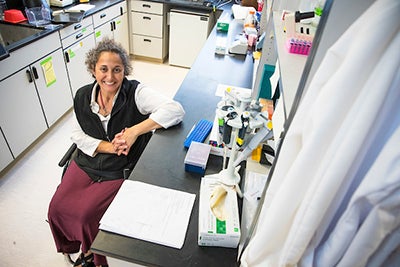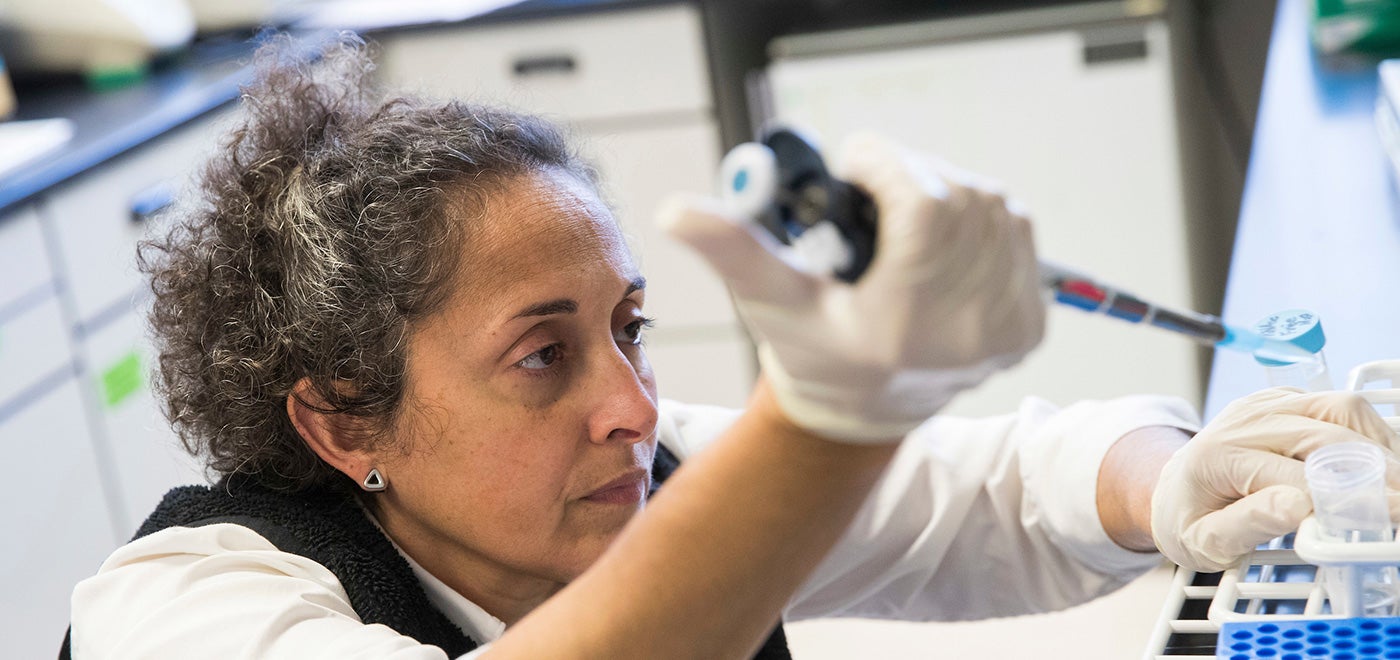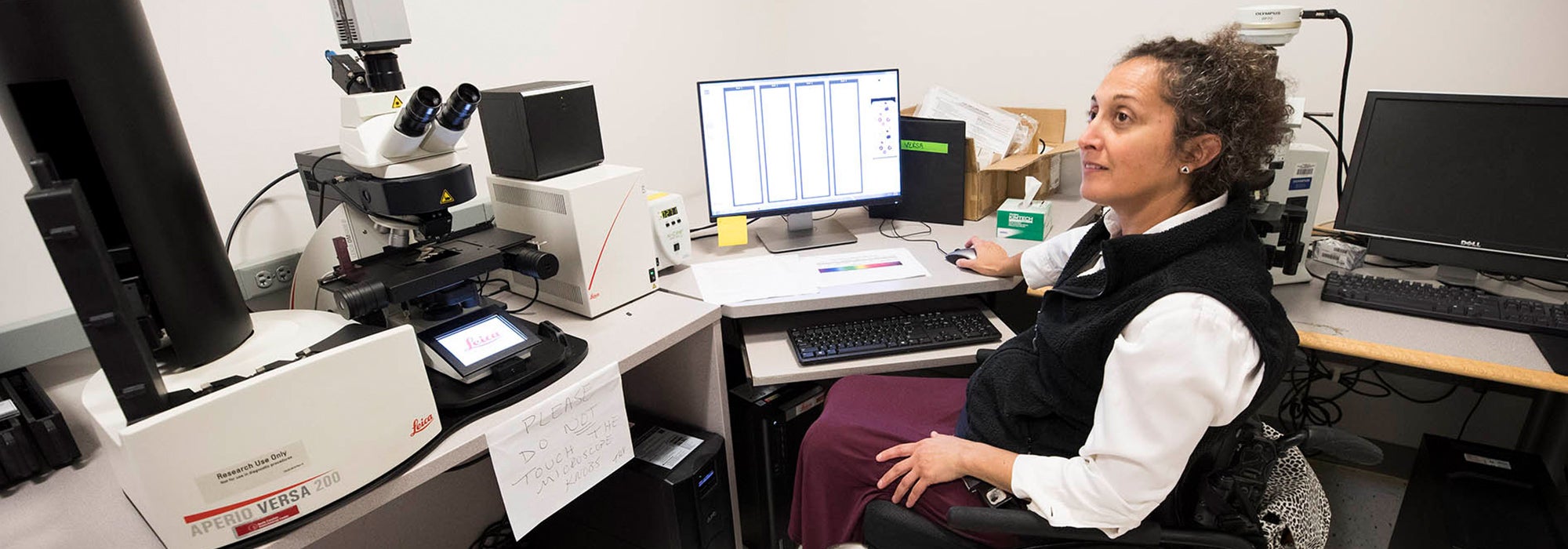STAT MADNESS
Pioneering heart disease research at ECU earns spot in national competition
Imagine that someone suffering from a heart attack could have their life saved by the administration of a protein instead of having to undergo a stent placement or heart transplant surgery.
Dr. Jitka Virag, an associate professor in the Department of Physiology at the Brody School of Medicine at ECU, says the EphrinA1-Fc protein could one day make that possible.
“Heart disease is a major public health problem, especially heart attacks. One in seven deaths annually are due to heart attacks, which occur at a rate of one every 40 seconds,” Virag said. “I am studying how we can repair heart attacks using a protein that is already in a healthy heart. In our experimental models, we have found that injured cells lose their expression of this protein and adding back into the injured heart greatly reduces the damage.”

Dr. Virag in her lab at the Brody School of Medicine.
Heart disease and heart attacks cause cells to die due to a lack of oxygen, leading to tissue damage and loss of function. Traditional treatment often includes reperfusion therapy – the use of drugs and sometimes surgery to restore blood flow through or around blocked arteries. Virag and a team of ECU researchers have found that adding the EphrinA1-Fc protein as an adjunct to reperfusion therapy not only preserves the integrity of heart muscle cells, it might also possibly reverse tissue damage in cardiovascular disease.
“We originally thought that this protein would enhance the speed and extent of revascularization of the heart and that would prevent the injury from being so dramatic, but we found that that is not exactly the case. It’s actually protecting the heart cells themselves from injury,” Virag said. “We don’t know exactly how this happens yet, but we’re working on some exciting new lines of evidence.”
This research was selected to be part of the nationwide bracket-style competition STAT Madness, hosted by the Boston Globe Media-produced national publication STAT. The single-elimination tournament is seeking to find the “best innovations in science and medicine.”
In the first round of the tournament – which features a field of 64 competitors from prestigious institutions, including Harvard, Stanford, Yale and MIT – Virag’s research is taking on research from Stony Brook University aimed at understanding the evolution of the first bits of chemical matter in the primordial soup into more complex molecules.
“I was very surprised to actually get selected to be part of this process given the high-profile nature of many of the other organizations who are involved. So it’s very exciting to get this kind of visibility,” Virag said.
While the winner of STAT Madness does not win a trophy or any prize money, Virag said being part of such a high-profile competition could have significant tangible benefits.
“The more that the general public understands the kind of research that is being done and how hard people like me are working to find answers to the problems, the better our chances are of getting federal funding to support this research,” she said, adding the contest could also optimize her chances for collaborations with other institutions.
Virag said she also hopes it will inspire passion for discovery in others.
“If this competition sparks interest in young people to pursue a career in science, that will be a successful venture,” she said.
The first round of voting for the STAT Madness tournament began at midnight on Feb. 26 and continues until March 1. To follow the competition and vote visit: https://www.statnews.com/feature/stat-madness/bracket/.

Dr. Virag is researching how a protein could help repair cells damaged by heart disease and heart attacks.
